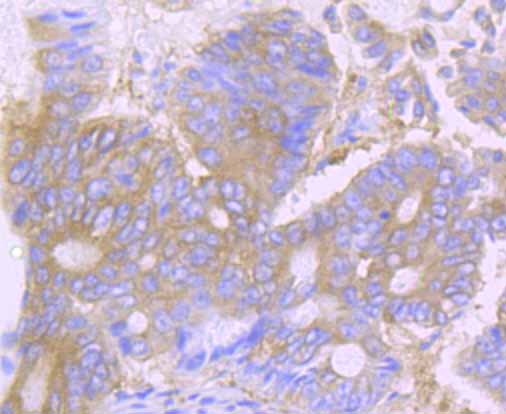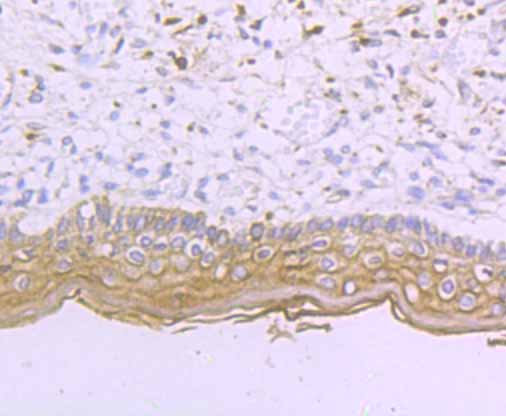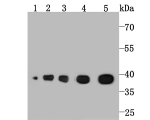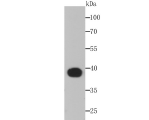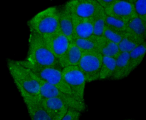Desmogleins (dsgs) are type I membrane proteins that are important for cell adhesion and are expressed in great abundance at the desmosomes, which are adhesive cell junctions. The dsg proteins belong to the cadherin family and consist of dsg1, dsg2 and dsg3. Calcium binds to the putative calcium binding sites at the extracellular N-terminal domain of dsg1, which has cadherin-like repeats. Unlike normal human keratinocytes, the squamous cell carcinoma cells exhibit diminished or unusual expression of dsg3 and dsg1, which bear pemphigus vulgaris and pemphigus foliaceus antigens, respectively. Cultured normal human keratinocytes express dsg1 and dsg3 mRNA, with or without dsg 2 mRNA, which indicates that desmoglein isoforms exhibit abnormal expression and may be related to tumor cell kinetics, such as cell invasion and metastasis. Pemphigus is an autoimmune disease of skin adhesion associated with auto-antibodies against a number of keratinocyte antigens, such as the adhesion molecules dsg 1 and 3 and acetylcholine receptors.

